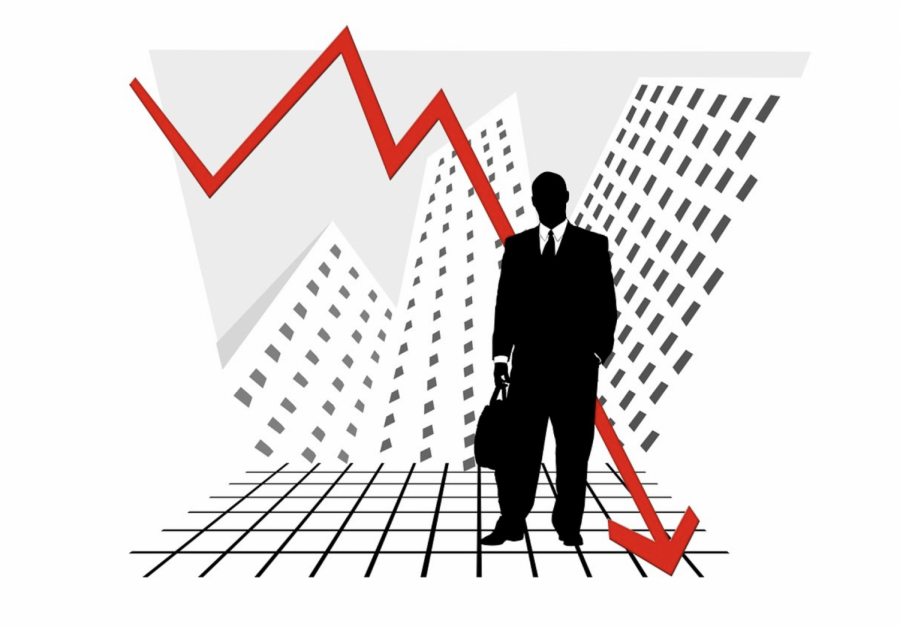Coronavirus causes stock market drop
Photo freesvg.org
On March 12, the Dow Jones Industrial Average had its largest single-day drop since the crash known as “Black Monday” in 1987. This drop came suddenly after President Donald Trump announced a nationwide travel ban to European countries due to the Coronavirus pandemic.
The Dow is a stock market index that measures the stock performance of the largest 30 companies in the United States on the stock exchange. According to Fox Business, the Dow dropped 2,352.60 points on March 12. However, the economic crisis did not end there. On March 16, the Dow had its worst point drop in U.S. history, dropping 2,997 points.
“The current volatility of the stock market leaves me nervous for the economy and my parents who may be directly affected by it,” said senior Connie Liu.
Earlier in the week, the stock market halted for 15 minutes after the S&P 500, that measures the stock performance of the largest 500 companies, fell 7 percent within the first few minutes of the market opening, causing the first-level of circuit breakers to take effect.
Circuit breakers were created after the stock market crash of 1987 in order to allow investors to create a strategy during a break period. Only the first-level of circuit breakers were engaged on March 9, but if the S&P 500 dropped 13 percent before 3:25 p.m., the market would have closed for an additional 15 minutes. The third-level would have been engaged if the S&P 500 dropped to 20 percent, which would close the market for the rest of the day.
While the stock market has suffered many blows in the past couple of weeks, things are starting to look up. Trump told reporters that he wants the country to be opened up by Easter (April 13), and Congress agreed to a $2 trillion stimulus package to help the economy, the largest emergency package granted in U.S. history. These actions caused the Dow to increase by 1,985 points on March 24.
“The next year or so is definitely going to be hard for seniors who are going to enter the workforce out of high school, but beyond that, things depend enormously on how fast the nation recovers,” said senior Aidan Kilbourn.

